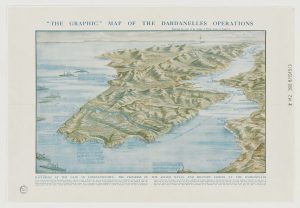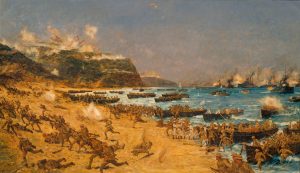
Finest Hour 169
Letters

Winston Churchill, Parliament Square, London © Sue Lowry & Magellan PR
November 10, 2015
Finest Hour 169, Summer 2015
Page 05
Email: [email protected]
Tweet: @ChurchillCentre
Finest Hour 168
Not So Grand
PENDER ISLAND, B.C.— Congratulations on another good issue; but please forgive a quibble with your reviewer of Churchill in North America, 1929 who on page 40 retails the legend that WSC got £40,000 for what he wrote about his American journey in 1930. Roy Jenkins says it; Martin Gilbert says it; but it is still totally unfounded, as I pointed out politely on pp. 133–34 of my book Mr. Churchill’s Profession [Bloomsbury, 2012, reviewed in FH 155].
—Peter Clarke

2025 International Churchill Conference
General Disagreement
BARCELONA—I was struck by Paul J. Taylor’s effort to find “common threads” between Churchill and the author’s distant cousin Gen. George S. Patton, Jr. in “The British Lion and Old Blood and Guts.” The truest line in the piece came at the end, where he says, “Patton was no Churchill.” By a long shot!
—Andrew Lluberes
True Patriot Love
TORONTO—Professor Callahan writes in “Churchill and the Empire’s Armies” that “Canada’s army was not committed to battle apart from Mountbatten’s fiasco at Dieppe until 1943….” The truth of that statement depends on how one reads “army” and how one reads “committed.” Elements of Canada’s army participated in the invasion of Norway and reinforced the retreating Allies in France before the Dunkirk evacuation.
And Europe, of course, was not the only theatre of war. Although Churchill believed that there was “not the slightest chance of holding Hong Kong or of relieving it,” the Chiefs of Staff had a change of heart and the Royal Rifles of Canada and the Winnipeg Grenadiers were dispatched to defend the island, where 290 Canadians were killed and more than 1,600 captured after the surrender on Christmas Day 1941.
The article is about armies, but we should not forget that more than 100 Canadian fighter pilots fought in the Battle of Britain and even more in the very early efforts of Bomber Command. Canadians were major players in the Battle of the Atlantic, the longest campaign of the war, and hosted both the British Commonwealth Air Training Plan and Camp X, established in December 1941 just east of Toronto, as the training ground for Allied Special Forces units.
To Canadians being committed meant support for Britain in a myriad of ways from the very beginning. Certainly Britain never “stood alone.” I thank Professor Callahan for explicitly stating that this description (notwithstanding its source) “was not, in fact, accurate” and for telling readers that “it is a deserving story historians are only beginning to investigate.”
—John G. Plumpton
Cover Art
NEWPORT BEACH, CA— My son Grant and I have been overwhelmed by the heartfelt responses we have received since his artwork appeared on the cover of Finest Hour. In the last few weeks, Grant has received many interesting letters from people, some of whom he has never met. Grant is incredibly grateful for the willingness of people to reach out in this way. Perhaps the key factor is his age, twelve. At this year’s conference Allen Packwood said, “We must look to the next generation, or surely the Churchill Centre will die.” This connection between the generations is how we move the legacy of Winston Churchill from active memory to active history. To quote Grant: “My hero for peace is Winston Churchill because he saved the world.”
—Dana Agamalian
Editor’s Note
The flags included in Grant’s cover art for Finest Hour 168 were selected for illustration only and not intended to enumerate or recognize all the Allied nations that participated in the Second World War. Nevertheless we apologize to nationals of any countries that were omitted, especially those of the British Commonwealth and Empire, including Canada, South Africa, Australia, and New Zealand.
Erratum
MOULTONBOROUGH, NH— Finest Hour founding editor Richard M. Langworth writes to correct the record on FH 164, page 36: “Mea culpa: Lady Soames’s confrontation with the entertainer occurred at the 1998, not 1991, Williamsburg Conference, and friends present tell me he was not impersonating Jefferson. I was not referring to the Jefferson impersonator at the dinner of 6 November 1998, who was very well received.”
Subscribe
WANT MORE?
Get the Churchill Bulletin delivered to your inbox once a month.
Oops! We could not locate your form.
Privacy




